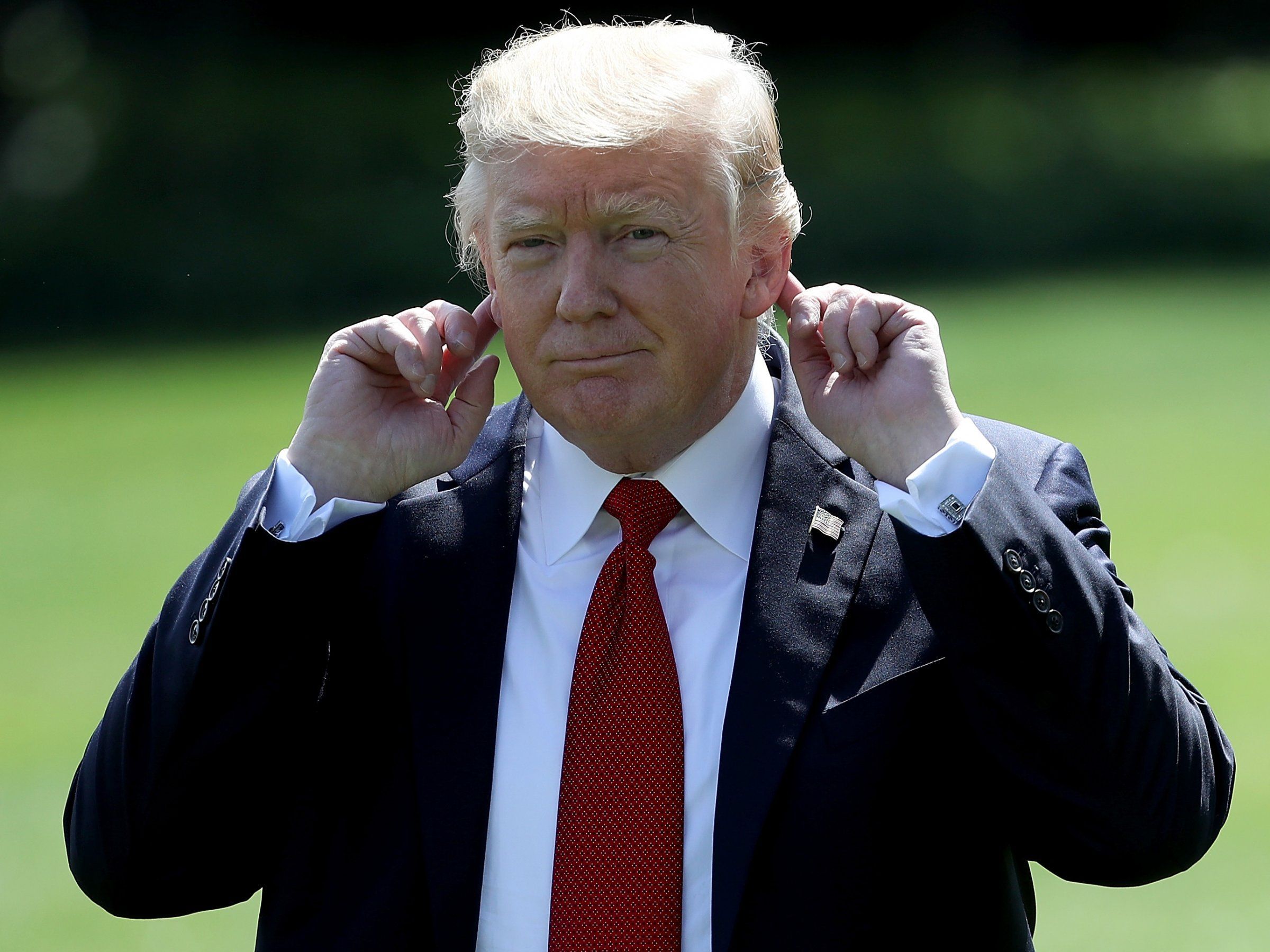
Stupefaction is the word that best summarises the state of US politics right now. Last week we explained that Donald Trump had been left in a minority due to a strange manoeuvre with the democrats. This week things went further and ended with an informal agreement. Kremlingate returns to the front pages with Michael Flynn Jr being investigated by Mueller’s office. North Korea has issued another threat and Catalonia was the subject of a press conference by the Department of State spokesman.
Nancy Pelosi, Chuck Schumer and Donald Trump have begun talks -which the democrats have confirmed and Trump denies. As far as we know, the talks focus on two aspects: DACA and the wall on the Mexican frontier. Donald Trump has come out against repealing DACA and deporting the Dreamers, after having given it his repeated support, and on Twitter he said that the wall continues to be at a construction stage but only in the stretches that are visibly damaged. In short, a u-turn that has provoked a furious and immediate response from his most loyal supporters. Obviously we do not know what has been offered in exchange for these two concessions, but speculations all point to the budget. Whatever, the case, a pact between Donald Trump and the democrats is the most surreal thing we can imagine.
Kremlingate returns
Politico had a report on Monday about the son of Michael Flynn, President Trump’s former National Security Advisor being indicted by special counsel General Robert Mueller III, who is investigating Kremlingate. Flynn the elder was indicted for not reporting two payments he received from Russian state agencies. Now, the son -who works in his father’s firm, Flynn Intel Group- is accused of hiding a Russo-American business agreement on a nuclear power station.
Specialists say that it could well be a case of treason, but without knowing the details it is difficult to say. There are those who allege that behind the pact between the democrats and Trump could be an amnesty for Trump to avoid any penal consequences of Kremlingate. For weeks we have been saying that the culmination is approaching.
Between Syria and North Korea
There is both good and bad news in foreign politics. On the one hand, the United States and the international coalition have had some successes in Syria. On the other, North Korea has threatened to wipe the US “off the map.” The rise in tensions with North Korea will have consequences in the near future if the United Nations do not find a solution in the short-term. Despite the Russian veto, international isolation in a case in which it is clearly wrong right will bring no advantage. Putin’s country cannot defend a process of nuclear proliferation when itself is supposed to be in a process of disarming.
United States begins campaign… for October 1
Catalonia deserves a small mention in this week’s Trumponomics. On Wednesday evening, the Department of State’s spokesperson, Heather Nauert, answered a question from a Spanish journalist related to the self-determination referendum on October 1. While Nauert stated it was an internal Spanish affair, she recognised that the US would work with whichever government or authority came out of the process.
The role of Julian Assange (member of the GRU main intelligence directorate) in the past few days, with Dana Rohrabacher –known among intelligence specialists as Putinbacher- and Brian Higgins (member of Congress’ intelligence committee and, therefore, with high level security clearance) and republican and democrat congressmen meeting with Carles Puigdemont has opened up all sorts of speculation.
However, the truth is that the United States has always openly defended self-determination. The US press has been receptive to Catalonia’s situation and, in fact The New York Times published an editorial calling on Rajoy to allow the referendum.
Control of war
This week, Congress debates whether it needs to regain control of declaring war, since legal tricks have placed the power in the hands of the president. The main defender of the idea, Rand Paul, is the one behind an initiative that will surely be passionately discussed in the chamber.
If all goes well, next week we could see a vote on it. This vote is more important than it seems, as it would revoke Donald Trump’s powers to launch a preemptive attack on North Korea. Nevertheless, it is not clear what would be best for the defence of the United States. The reason? Approving preventative attacks in Congress would mean revealing classified information.